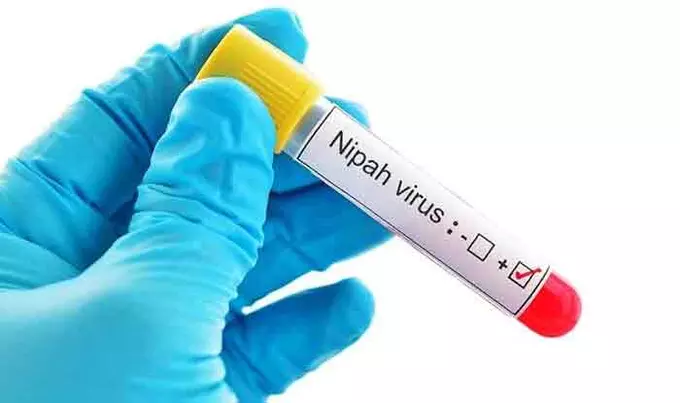Nipah Infection Confirmed in 14-year-old Boy in Kerala

Nipah Infection Confirmed in 14-year-old Boy in Kerala: Health Minister Veena George. (Photo: X)
Thiruvananthapuram: A child from Pandikkad, in Kerala's Malappuram district who is currently receiving treatment in Kozhikode, has been confirmed to have the Nipah virus.
Health Minister Veena George told media persons on Saturday that the presence of the virus was confirmed through tests carried out at virology laboratories in Kozhikode and Pune. An alert has been issued in the district.
The Health Minister announced that Nipah virus prevention measures are being implemented according to protocol, and precautionary steps are underway. This marks the fifth instance of the Nipah virus confirmation in Kerala.
The boy, a native of Perinthalmanna, who is being treated at a private hospital in Kozhikode, was transferred from Perinthalmanna on Friday due to symptoms indicative of Nipah virus infection. The minister has stated that the child will be moved to the Kozhikode Medical College at the family's request.
The condition of the boy is critical. It was on July 15 that the patient started experiencing health issues. Since then he has been treated in three different hospitals in Malappuram.
The mode of virus transmission remains unconfirmed, but it has been revealed that the child consumed Ambazhanga (Hog Plum). Those in close contact with him are under observation.
The health department has established a control cell in Malappuram following the confirmation of Nipah virus. A 24-hour control cell is now operational at the PWD rest house in Malappuram, with the contact number being 0483-2732010.
In Manjeri, 30 special wards have been set up and a control room is in place. The primary and secondary contacts of the Nipah patient are being monitored. With the confirmation of the virus, the health department has swung into action enforcing a series of measures to check the spread of the infection.
Experts have convened meetings to immediately put in place the disease control, prevention and treatment measures. Health officials said efforts have begun to identify the contact list of the infected person.
Strict measures to contain the epidemic
The authorities will decide on declaring any containment zone only after examining the ground situation.
The use of masks and sanitisers has been made mandatory in the affected areas and people have been asked to maintain social distance.
Symptoms of Nipah
Medical experts say the symptoms include high fever, vomiting, nausea, headache, drowsiness and fainting.
Symptoms might remain for 10 to 12 days. The disease can become fatal only at a stage when encephalitis or brain fever (inflammation of the brain) occurs.
The mortality rate among infected people is as high as 74.5 per cent.
Transmission of virus
From fruit bats to animals through bites.
From animals to other animals through fluids, from bats to humans if one happens to consume fruits bitten by bats, transmitted from animals to humans through body fluids and from humans to humans through body fluids.
Preventive measures
Refrain from eating fruits bitten by birds and animals
Wash hands properly after coming into contact with infected persons
Use masks and gloves while taking care of patients and avoid consuming toddy collected from areas where bats are found in large numbers.
What is the Nipah virus?
The virus was first detected in Malaysia's Kampung Sungai Nipah area in 1998 following a brain fever epidemic. The disease spread among workers who were working in pig breeding centres.
( Source : Deccan Chronicle )
Next Story

